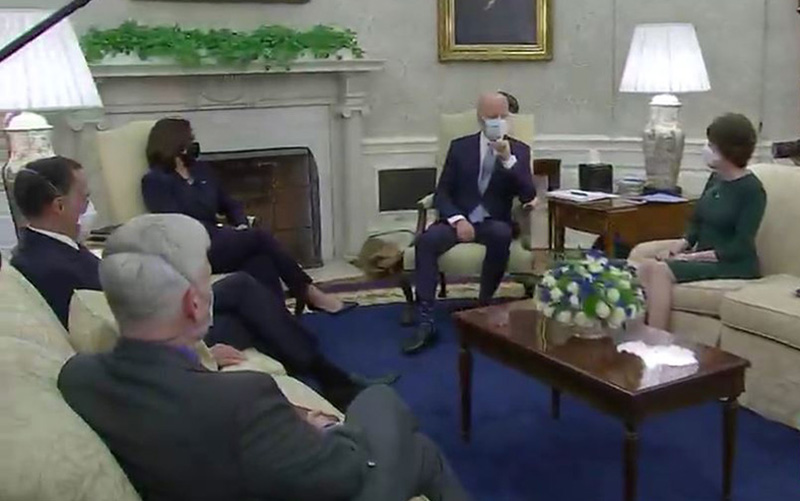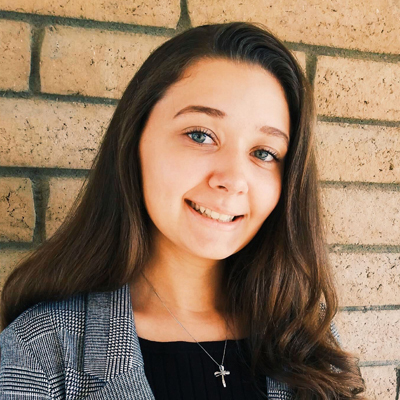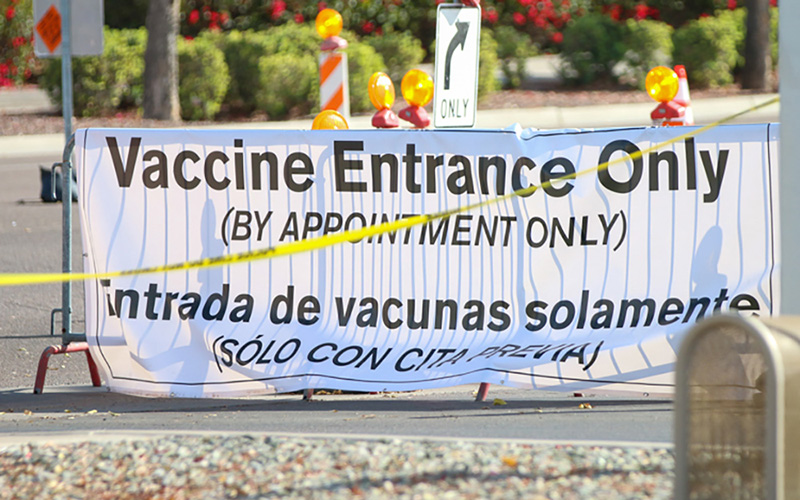
President Joe Biden and Vice President Kamala Harris met with Republican senators who presented a $618 billion alternative to the president’s proposed $1.9 trillion COVID-19 relief bill. But Democrats are backing Biden’s larger bill, which includes money for local governments and a $15 federal minimum wage, among other changes. (Photo courtesy C-SPAN)
WASHINGTON – Six Arizona mayors were among hundreds who urged Congress to pass a $1.9 trillion pandemic-relief bill that includes $350 billion in aid for state and local governments who say they are on the front lines of the crisis.
Republicans in the House and Senate have said they want to approve COVID-19 relief but pushed back against what Rep. David Schweikert, R-Fountain Hills, called the “stunning amounts of money” in the bill – including the money for local governments.
But Scottsdale Mayor David Ortega, one of 402 who signed on to the U.S. Conference of Mayors letter last week, said the money is needed for cities and states who he called “the foot soldiers” of the fight against the pandemic.
“We are on the ground with all of the fallout and effects of the pandemic. Our number one role as a city is to be sure that there are no gaps in service,” Ortega said. Along with Ortega, mayors of Phoenix, Tucson, Yuma, Mesa and Glendale also signed the letter.
The House Wednesday heeded the mayors’ call, voting 218-212 for the full $1.9 trillion package, with every Republican and two Democrats voting to oppose the measure. Arizona’s House members split on party lines on the vote.
Besides the local government aid, the “American Rescue Plan” also includes direct payments of $1,400 per person, rental assistance, expanded food stamp access and an extension of pandemic-related federal unemployment benefits. The bill also calls for a $15 federal minimum wage, a proposal that opponents said has no place in a relief bill.
An analysis by the Tax Foundation said the plan also includes $170 billion for schools, $160 billion for vaccine distribution, $15 billion for small business grants, among other items.
Biden said the plan is “ambitious, but achievable, and will rescue the American economy and start beating the virus.” The administration has said repeatedly that there is greater danger to the economy in going small than in going too big.
Republicans disagree. Ten GOP members of the Senate met Monday night at the White House to present their own $618 billion plan, which includes direct payments, vaccine and testing funds, increases in unemployment and school funding – but no direct aid to local governments.
While Republicans agree that more pandemic relief is needed, they also note that there is still money that has not been spent from the $900 billion relief package that was passed in December.
“We’re going to be sending stunning amounts of money to places that it’s just going to sit in the bank account,” Schweikert said on the House floor Wednesday. “It’s going to go to places where it’s not actually creating their philosophy, the multiplier effect of helping those who are suffering.”
Rep. Raul Grijalva, D-Tucson, disagreed, saying Americans have needed the assistance for more than a year. Relief is particularly needed in Native American communities, he said, citing the $20 billion included for tribal governments and $5.8 billion for the Indian Health Service.
“The effects of the pandemic, COVID-19, has been devastating to many populations across this country,” Grijalva said. “It has particularly and severely impacted Indigenous people and tribes across this country disproportionately, four times higher than the national average.”
Still, critics said the administration bill is not focused on where it is needed.
“I care deeply and am desperately concerned for the poor and working poor in this country. And this document, if we’re going to be honest about it, does not target their suffering,” said Schweikert. “The model that we’re reading in this resolution, isn’t it.”
Chris Edwards, an economist with the Cato Institute, said that with the exception of a couple very large cities, like New York and San Francisco, most local governments do not need the help included in the bill.
“I don’t think most cities and counties are in trouble. Most of them are doing pretty well,” Edwards said.
Ortega disagrees, one of the reasons he said he signed on to the mayors’ letter.
“I did it for two reasons,” he said. “One, is to support other mayors and other cities and their residents and employees. And of course to make sure we have a safe, healthy and beautiful environment for people that live here.”
The Senate could vote on its version of the bill this week after a procedural vote Tuesday to get around the threat of a filibuster. Arizona Sens. Kyrsten Sinema and Mark Kelly, both Democrats, voted to advance the bill.


